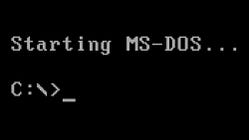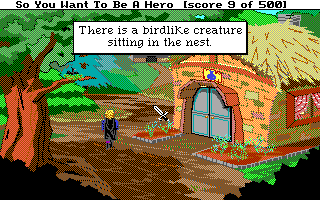Being A Hero: The First Game That Changed Me for the Better
At GDC 2016, my favorite talk was a series of recaps from industry pioneers called “Flash Backward: 30 Years of Making Games”. Amongst the speakers was Lori Ann Cole, the designer/developer of one of my earliest and favorite games of all time.

“A man doesn’t stop playing because he gets old. He gets old because he stops playing.”
George Bernard Shaw
Nobel Prize winner in Literature
I Want to Be a Hero
Most of the gaming in my early life simply appeared in the house since my father and brother were both into personal computing back in the 1980s. Underdeveloped hand-eye coordination and cognition made watching games much more enjoyable than playing myself. For that phase in my life, the games section of Sears would be a free babysitting area for my parents as I would stand there mesmerized for hours on every visit. Santa Claus with free candy wouldn’t have been able to peel me away from that area. The first game that I ever wanted was one of the demos at Sears, the RPG adventure Hero’s Quest: So You Want to Be a Hero.

Watching Heroes
Although our family was considered technologically savvy for the time, we certainly didn’t have the money to buy up all of the latest and very expensive tech. Our home computer only had a CGA monitor with a grand total of 4 colors… yes, FOUR. Meanwhile, Sears demoed Hero’s Quest on an EGA monitor in all of its 16 color glory and catchy MIDI music blasting on its external speakers. Even though Hero’s Quest wasn’t the most advanced game of the time, its publisher, Sierra, had put out several successful adventure games and was able to push their latest one out as the new face of PC gaming. The concept of a Sierra adventure game using a fantasy setting was especially exciting as this was shortly after I saw the movie Willow. While most of the game had the familiar adventure game setup, combat was a separate system that gave it an action/RPG element, putting a light into my young eyes. When I finally played the game several months later, I would be inspired not by the ability to be a hero, but rather by the process of becoming one.

Becoming the Hero
What differentiated Hero’s Quest was that it had a skill system that you could develop over time to solve puzzles in the game. Though extremely simple in today’s terms, the idea that you could retrieve an object from a bird’s nest by either throwing a rock at it, fetching it with magic, or by climbing the tree, was extremely innovative for the genre and eye-opening for a young gamer. In all three cases though, your starting player lacked the skills to do any of those options, thus you had to train. As tedious as it sounds, practicing those skills had multiple benefits for your character. For example, attempting to climb the tree repeatedly would benefit both your Climbing skill as well as your base Agility, which was used for other activities like combat.

The marginal benefits for mundane activities allowed me to identify with my character since I would remember the number of times I tried to climb that tree before becoming the hero at the end of the game. It was a valuable lesson for a six-year old that you don’t start as hero, but with hard work, you could eventually become one. Real life yard work became a lot more bearable when you thought of it as strength and endurance training. Discipline is an invaluable trait for parents and teachers to instill on children, but self-discipline carries on for life.
My Hero
As I’m diving deeper into developing my own game, I’ve grown to recognize and fully appreciate the details that made me love this classic game. At GDC 2016, I got a chance to see Lori Ann Cole, the developer/designer of Hero’s Quest, and hear her talk about the evolution of the adventure game genre. While I became the hero in the game, developers of these classic games will always be my heroes in life.

Telly Lee
Salad Hunters Inc.
@saladhunt
Read more about:
BlogsAbout the Author(s)
You May Also Like







.jpeg?width=700&auto=webp&quality=80&disable=upscale)








